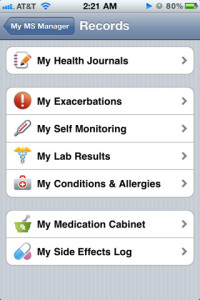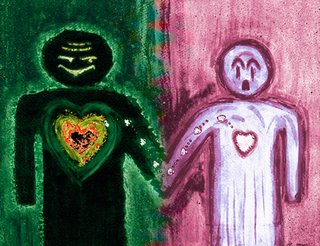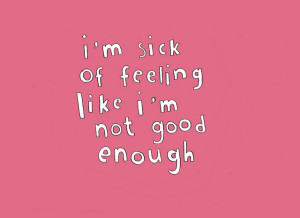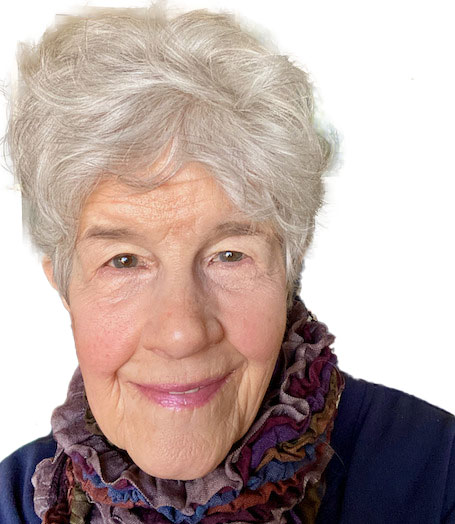I just did an internet search on “self help.”
I did this search because so often I hear people talking about being selfish. I don’t know what it is like in other parts of the world, but at least in the US we are raised to be on the lookout for our own selfish behavior, and try to wipe it out.
I wondered about the contradiction between this thought about selfishness, and our ferocious (at least in the West) emphasis on self help.
The results of my search were interesting:
Selfish—62,100,000
Self help—899,000,000
Self care—721,000,000
It looks as if we are caught between poles:
It is bad to be so focussed on my self, I should be giving to others.
I need to be a better person than I am, so I should focus on my own improvement.
Doesn’t it come down to the same thing in the end? Whether we are reading a self help book or helping others, we are trying so earnestly to be a better person. But I think our effort is skewed: we too quickly look for what is wrong with us, instead of what is right.
When I work with people individually, I am always falling in love with the understory I hear in them: their deep, earnest desire to be healthy in mind, body and spirit.
While they are telling this story from the perspective of the pain of their lives, I am hearing their inner goodness trying to find its way in the world.
I have been reading Oliver Sacks’ book Awakenings. Sacks is one of my very favorite sources of wisdom. What he says always emerges from a shining intelligence, which itself emerges from a loving heart. He is a neurologist who is so able to see beyond a diagnosis to the life of the person who is manifesting the symptoms that get categorized and boxed up and labelled as a disease.
In Awakenings Dr. Sacks writes about what was known in the early part of the 20th century as “sleeping sickness,” (encephalitis lethargica) and Parkinson’s disease. From the back cover of the book:
Awakenings—which inspired the major motion picture—is the remarkable story of a group of patients who contracted sleeping-sickness during the great epidemic just after World War I. Frozen for decades in a trance like state, these men and women were given up as hopeless until 1969, when Dr. Oliver Sacks gave them the then-new drug L-DOPA, which had an astonishing, explosive “awakening” effect. Dr. Sacks recounts the moving case histories of his patients, their lives, the the extra-ordinary transformations which went with their reintroduction to a changed world.
It was fascinating reading, but I was just about to put the book down midway through it. There was case study after case study of people Dr. Sacks had worked with who manifested this disease and went through the astonishing awakening, and then in most cases reverted into a spiral of deterioration again. It was becoming overwhelming to me to read about it. I loved his connection with the people, and how clearly he saw them, but it was all kind of too much to take in.
But then in the middle of the book he began to share his thoughts about health. And there, I was captivated.
Why did so many of our patients, after doing so well at first, spoil, ‘go bad,’ move into all sorts of trouble? Clearly they had in them the possibilities of great health; the most deeply ill patients were able to become deeply well for a time. Thereafter, apparently, they ‘lost’ this possibility, and in no case were able to retrieve it again; such, at least, is the case in all the Parkinsonian patients I have seen.
One must allow…that their possibilities of continued well being were actively precluded or prevented because they became incompossible [unable to co-exist] …with the totality of their other relationships, without and within.
In short, that their physiological or social situations were incompossible with continuing health, and therefore disallowed or displaced the first state of well being, thrusting them into illness again…. p 263
One must allow the possibility of an almost limitless repertoire of functional reorganizations and accommodations of all types, from cellular chemical and hormonal levels to the organization of the self—the ‘will to get well.’
One sees again and again, not merely in the context of L-DOPA and Parkinsonism, but in cancer, tuberculosis, neurosis—all diseases—remarkable, unexpected and inexplicable resolutions, at times when it seems that everything is lost.
One must allow—with surprise, with delight—that such things happen, and that they can happen to patients on L-DOPA as well. Why they should happen, and what indeed is happening are questions which it is not yet in our power to answer; for health goes deeper than any disease. p 268
What these words say to me is that resident deep within all of us, no matter what, is health. It is always available to us. How wonderful to know this!
However, in some cases, the way we live our lives, the people we hang out with (including our families), and the way we talk to ourselves can make health difficult for our beings to support.
Our insistent focus on seeking self help must come from this deep place of awareness in us, that underneath whatever symptoms we appear to be manifesting, we are embodied health.
 But I think we get it wrong sometimes. I worked with someone recently who has chronic pain. She said, “If I don’t get better it will be my fault, because it would mean I am not taking care of myself.” I asked her what “taking care of myself” meant to her. She mentioned going to physical therapy and doing regular meditation.
But I think we get it wrong sometimes. I worked with someone recently who has chronic pain. She said, “If I don’t get better it will be my fault, because it would mean I am not taking care of myself.” I asked her what “taking care of myself” meant to her. She mentioned going to physical therapy and doing regular meditation.
Then she said, “I have all these wonderful practices that I turn into rules. I like schedules. I ‘think in calendar.’ I have to do this particular thing at this time, and if I don’t, I feel guilty, wrong, I am critical of myself. If I don’t do it on Monday when I planned it, I am a failure, and then I feel hopeless. Why do it now? I have already failed. It is a vicious circle, I have lost control, I won’t start again.”
So I asked her what else she liked to do for self care. It turned out that she like to read self help books on pain, and take notes. And she kept a pain journal in which she evaluated her actions and the pain they caused and what she did to to make herself feel better.
It struck me that everything she did to “take care of herself” was focussed on her pain. Pain was at the center of her attention, it seemed, 24/7.
It reminded me of all the people I have worked with who have shared that the first thing they do when they wake up in the morning is to check in to their bodies, to learn “what is wrong with me today.” Their next thought would be “What do I need to take, or do, or make an appointment for, to fix what is wrong?”
In one way this is good—paying attention to one’s body and being alert to possible solutions. But here is where I personally think that “Self Help” takes a wrong turn, and becomes what Oliver Sacks called an incompossible situation.
Remembering that “incompossible” means “unable to co-exist,” I wonder if putting such consistently rapt attention on what is wrong, even in service of “getting better,” takes up all our inner space, leaving no room for health to live and thrive.
The pain, emotional and physical, is really a cry of the spirit for breathing room.
What if before we got up every morning, we took some moments to scan through our body to notice what feels good… and then let our attention expand to what we see around us and what we love about it?
My own bedroom is full of objects that my daughters made when they were young, paintings and photographs that make my heart sing, furniture that has deep family memories (I only go to the good memories when I think about my family though…), and a wonderful big window that looks out on the sky and the trees and the mountains. Each morning I take a moment to appreciate feeling so cosy under my comforter, snuggled up to my favorite pillows, loving my dogs who are alert for any movement that might lead to a good morning ear rub. I have a routine of energy exercises and stretches that I do even before I get out of bed, while I am still relaxed, spacious and quiet inside.
That feels like self care to me!
We are so earnest about “working on myself.” When she used that phrase, I asked the young woman above who “speaks calendar” and self criticism, to feel into the phrase “working on myself.” She said it felt like a chore.
So I asked her to feel into a better way of describing what she was doing. She came up with “relaxing into myself.” I asked her what that would mean, and she said “celebrating what I love about myself.” Continuing, she described “listening inside to how my body wants to feel and be aligned.”
As she did this, she noticed that her inner self felt “shaky, like it is looking for support.” With her full attention, her breath slowed and got deeper, her heart slowed and felt warm and full. “I feel like my heart is not just beating for work, it is beating to support me. I am connecting my inner self and my outer self, and celebrating that connection. I have never thought to do that before,” she mused.
As part of my monthly teleclass series on Standing Up for Yourself, I recently did a session on the topic “When you can’t stop worrying.” In this class I asked people to write to me about their experience with worrying by completing the following sentences. Then I fit their comments into a script that we tapped through in the class.
I can’t stop worrying because:
The bad thing that would happen if I stopped worrying is:
A belief (behavior, outlook on life, self-image…) about worrying that I got from my family is:
That has created a problem in my life because (or when – ) :
That made me feel:
I feel those feelings here in my body:
Here is some of what one person said. (Reading this, my thought was “She is not being selfish enough!”)
I can’t stop worrying because it is a habit. I can’t stop worrying because it keeps me occupied and unavailable to focus on weightier or more enjoyable matters. I can’t stop worrying because it makes me feel safe and in control.
 A belief that I got from my family is that you have to worry about hurting other peoples feelings. You have to always be on guard about what you might do or say that could affect them negatively. I am just starting to realize that my feeling and needs were not part of the equation. I learned and have believed that I have to control others behavior by my “good behavior”.
A belief that I got from my family is that you have to worry about hurting other peoples feelings. You have to always be on guard about what you might do or say that could affect them negatively. I am just starting to realize that my feeling and needs were not part of the equation. I learned and have believed that I have to control others behavior by my “good behavior”.
I am responsible for others emotional states.
No wonder I am so stressed out and worried. I believe I must behave in ways to guarantee the outcome of their behavior. I learned this is more important than behaving authentically. Guaranteeing a safe happy outcome is the goal.
That has created a problem in my life because my own real needs get lost. I often barely acknowledge my own needs, or I believe they are not important. It does not come natural for me to act in ways that say “I have a right to have my needs met. Another problem is that I spend too much energy and time worrying about others’ possible or actual negative reactions. I fear their emotional upsets including disapproval of me or my actions.
After the teleclass tapping session which included this person’s comments along with lots of other, similar ones, I got this response from another participant that warmed my heart: Wow Rue! Thank you! That was an amazing session. I really feel different. Like I’m lovingly caring for my life now and I can trust myself to do that.
The bottom line:
self help is really important,
and
we need to be more SELF-ish, not less!
I imagine Selfish as being spelled with a capital “S,“ with this inner meaning: “Take care of your soul, your spirit. If you don’t do this, no one else will.”
Open the space inside you for health and wellness to breathe and expand, even if you have illness or pain. Health and illness can be “compossible” (able to co-exist). Which one is dominant in your body and your being depends on which one you put your attention on.
Create your own tapping routine:
1. Fill in your own answers to the above questions.
2. Lift out the phrases in your writing that touch you the most deeply.
3. Borrow the phrases in the paragraphs above that have resonance for you.
4. TAP!
(Go here for a free manual on how to tap: http://www.eftfree.net/get-the-eftfree-manual/ )
With my love and blessing to you—
Rue
 Bird photo from Dreamstime.com, all other images from Google Images.
Bird photo from Dreamstime.com, all other images from Google Images.



